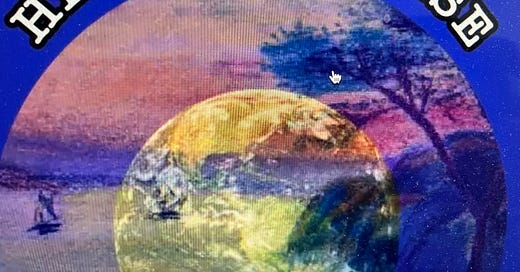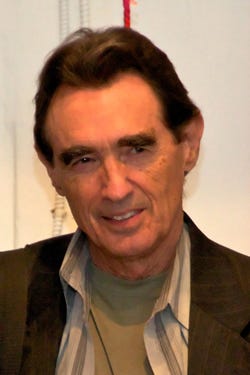Hello, Paradise, Paradise, Goodbye by Clive Matson (New Generation Beat Publications, 2025)
By Jonah Raskin, Chief Reviewer
THIS BOOK OF poems by Clive Matson is indeed about paradise lost and paradise found, themes long treasured by versifiers including John Milton who made the rebel Satan into the hero of his epic. The title of his latest collection, Hello, Paradise, Paradise, Goodbye, appears repeatedly in the text, perhaps because paradise is always arriving and departing and we earthlings are forever honoring its coming and lamenting its going.
Matson, who lives in Oakland, California, has been in and around the halls and the fields of Beat poetry for decades. In 2012 the City of Berkeley honored him with their Lifetime Achievement Award in Poetry. In 2021, the National Beat Poetry Foundation named him a Lifetime Beat Poet Laureate.
This writer began his days as a poet in the 1960s, on the Lower East Side of Manhattan. His mentors included Allen Ginsberg, John Wieners, Michael McClure, Herbert Huncke and Diane di Prima, who said that ‘his poems speak directly to the heart’. Matson has an MFA from Columbia and he has taught creative writing at UC Berkeley Extension. These days he’s also connected to Wordswell, which publishes art, prose and poetry.
Pictured above: Poet Clive Matson
Few poets today write about catastrophe, the apocalypse and the end of life on Earth as we’ve known with as much energy and enthusiasm as Matson. Few poets turn their exhilaration into poetry that is as disciplined and orderly as his work. He uses rhyme occasionally and playfully. ‘Snore’ rhymes with ‘door’, ‘deployed’ with ‘destroyed’, and ‘Coltrane’ with ‘rain’ and ‘fear’ with ‘hear’. But he doesn't strain for rhymes. They show up when they need to show up on the page. Sometimes he reverses the order of the words: ‘Faster disaster’ becomes ‘Disaster faster’.
Matson also repeats over and over and over again those titular words and phrases like ‘Hello, Paradise' and ‘Goodbye, Paradise’. Repetition is his bread and butter. He uses it so often that he must love it. Repetition itself seems to be the point of the poems, or at least one of them. If he repeats himself enough times maybe his message will sink into the minds of readers.
Ginsberg, of course, repeated himself in his poetry; the word ‘holy’ appears again and again in his ‘Footnote to Howl’. Matson borrows from that very section and writes ‘Holy, holy, holy, holy’. Repetition creates a certain rhythm in Ginsberg and it does much the same in Matson.
‘Goodbye’ he writes repeatedly in one poem and bids farewell to ‘Columbus, Captain Cook, Spain and the conquistadores’. He also calls for us, his readers, to ‘undo Hitler, Pol Pot, Stalin, Mao,/ Trump and others’. Matson doesn’t seem to favour the Left or the Right, red states or blue states. He’s on the side of the earth and with the Republic of Poetry.
Probably because I’ve used illicit drugs and am now a pill head consuming the pharmaceuticals my doctor prescribes, I enjoyed Matson’s verse on ‘meds’. He lists more than a dozen different names for marijuana and its California trade names: boo, ganja, bud, mary jane, green, hash, AK47, sour diesel, indica, hash oil, reefer, weed, Thai and more.
I recommend Hello, Paradise, Paradise Goodbye to lovers of Beat poetry. Matson carries on the tradition that Ginsberg and company began in the 1950s. The 37 poems in this volume, including ‘Money and Apocalypse’, ‘Money, Anxiety, Boots’ and ‘Poverty and the Trance’ offer humor as well as trenchant observations and the latest bad news about the fate of the earth. ‘End the madness,’ he writes. ‘End the madness’.






Nice review Jonah, sounds like a collection well worth reading. You may recall that a friend brought Clive to a reading you, Michael Goldberg, and I did at the sadly now defunct Octopus Literary Salon in Oakland some years back. I remember chatting genially with him about Huncke because I'd mentioned him in one of my poems.